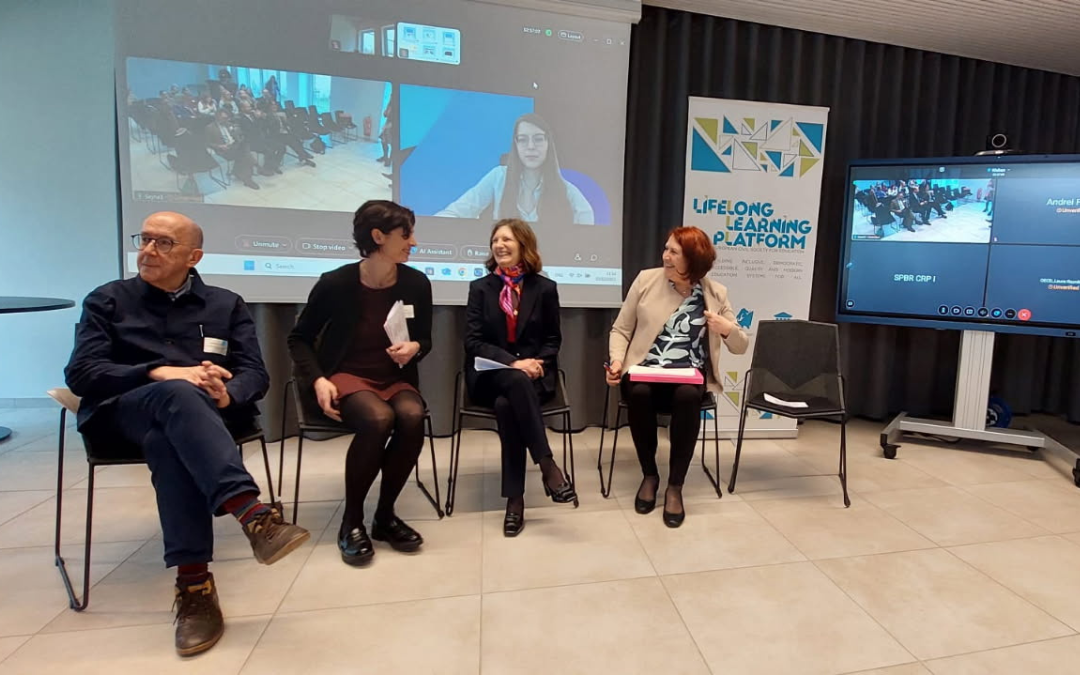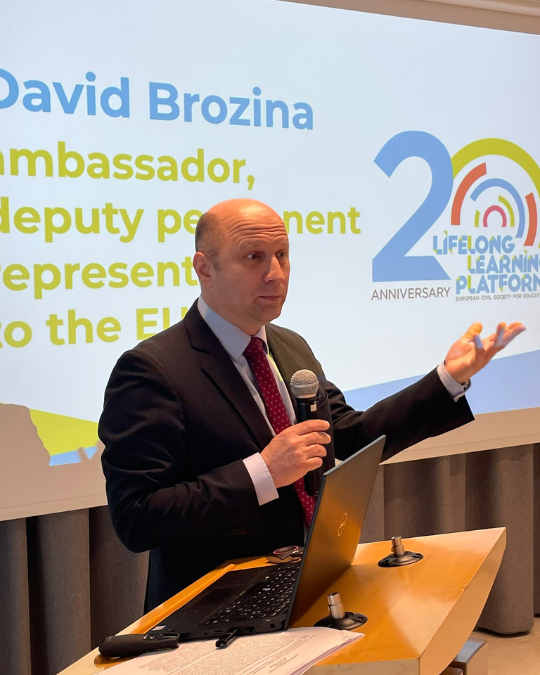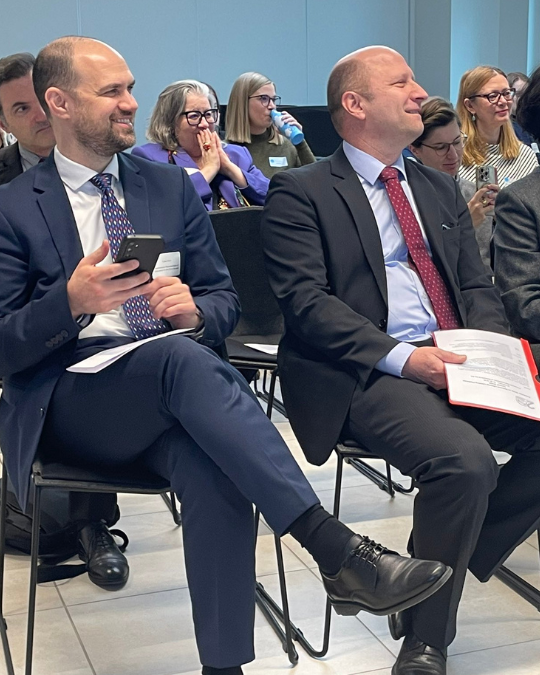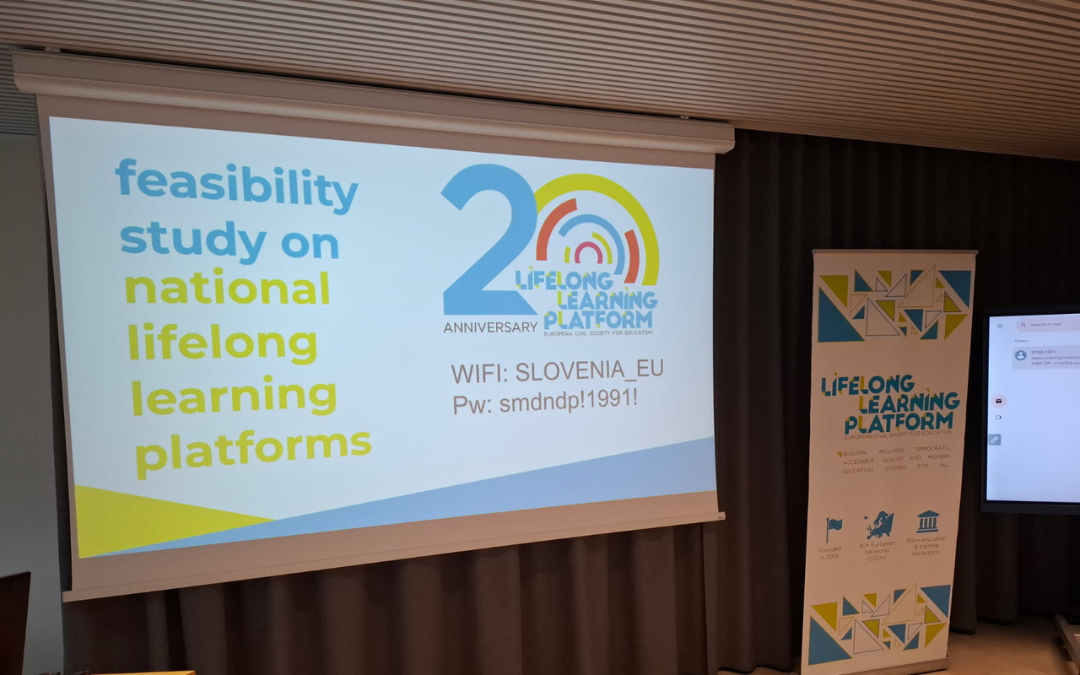New edition of the Study on National Lifelong Learning Platforms
On 20 February, the Permanent Representation of the Republic of Slovenia to the EU, together with the Lifelong Learning Platform (LLLP) – European Civil Society in Education, hosted an engaging event. It was dedicated to the official publication of the third edition of the Feasibility Study on National Lifelong Learning Platforms 2025.
LLLP staff prepare this study every seven years, with previous editions published in 2011 and 2018. The study is based on a survey completed by representatives of civil society in education, supplemented by insights gained from the analysis of key documents and initiatives at both the European and national levels. The importance of national LL platforms is tested each time through case studies in five countries. This time, Slovenia was also included in the study, alongside Finland, Hungary, Poland and Spain.
LLLP is an umbrella organisation representing over forty European networks and associations. It covers all levels of learning and education, from early childhood to later-life learning, as well as all forms, including formal, non-formal and informal education. One of its members is EAEA, which acts as the voice of non-formal learning and education in Europe. Our insttute, the SIAE is also a member of EAEA.
Representatives of nine other Permanent Representations to the EU attended the February event in Brussels, along with various stakeholders, including the author of this article, who acted on behalf of the Ministry of Education.
What is or could the LL platform be?
Through the preparation of this study, which is just a tiny part of its extensive and strongly advocacy-oriented activities at the European level, LLLP advocates for the establishment of national or regional LL platforms. It defines such platforms as one of the possible means of promoting and implementing a comprehensive vision of lifelong learning. A platform operating (or already in operation) as an institution or an association of interested stakeholders would also foster cross-sectoral collaboration and cooperation among various stakeholders in education and its broader environment. Among other benefits, it would enhance the influence of civil society on decision-making processes. However, it should not be limited solely to adult education, which is often the prevailing perception when discussing LL.
The researchers conducting the study also asked more than 150 survey respondents from the mentioned countries about their knowledge of European policies. Most reported being familiar with the Erasmus+ programme and its national agencies (in Slovenia’s case, CMEPIUS). However, awareness of other initiatives (such as the European Education Area, Skills and Qualifications, EAAL and others) appears to be somewhat limited.
The study provides valuable insights into the understanding of the principle of lifelong learning, the importance of harmonised terminology and the challenges in establishing the proposed platforms. Such platforms require not only resources – funding, personnel and time – but also a well-thought-out and, subsequently, well-executed approach to networking and cooperation. This should ultimately yield long-term and beneficial effects, including at the policy level.
I encourage readers to explore the study and the key messages prepared thereafter. I am pleased to note that several of the comments raised were taken into account in the second document.
Three opportunities to represent our approaches and views
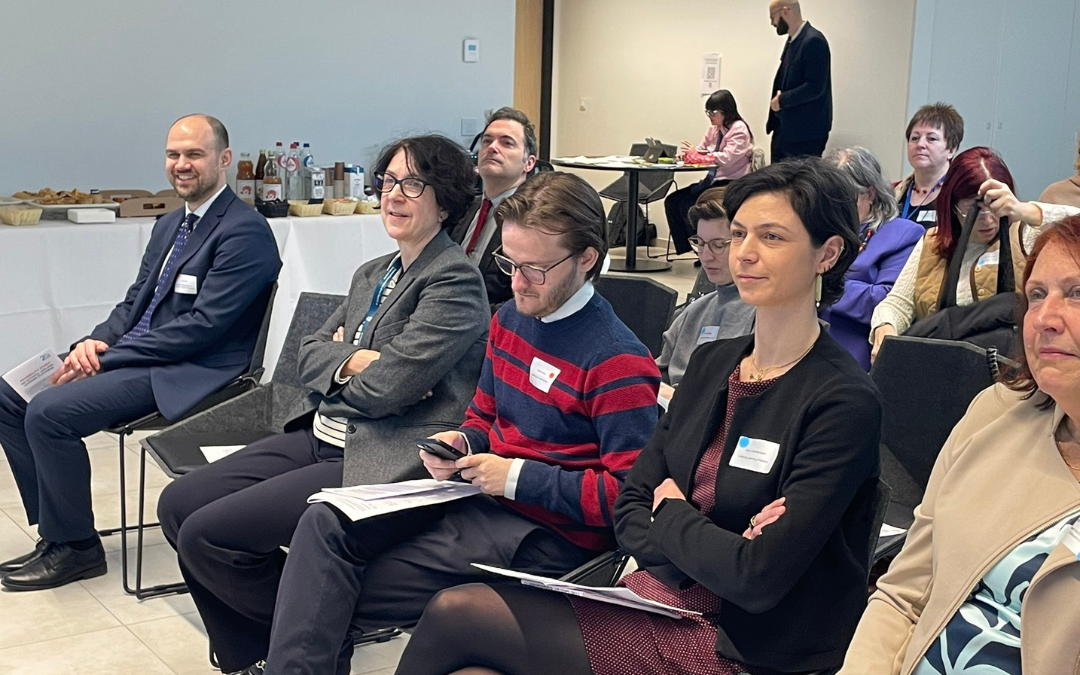
I thoroughly examined the study and several documents related to current developments at the European level and contributed expert suggestions for their improvement. One key recommendation was to include basic concepts in the introductory chapter, such as the definition of a platform, which currently appears only towards the end of the study. The study’s credibility and representativeness should also be enhanced, particularly by ensuring a more systematic approach to selecting respondents. This could be achieved by involving national stakeholders in each country, such as the SIAE or associations of ALE providers in the case of Slovenia. Additionally, the respondents should be analysed, and their profiles should be incorporated into the study. In Slovenia’s case, there were just over 30 respondents, with more than a third coming from third age universities. While commendable, this does not ensure representativeness.
I also took part in a working group focused on the understanding of LL and other European initiatives. I presented the example of Slovenia’s Adult Education Master Plan, which represents a top-down approach to implementing LL. At the same time, I highlighted a bottom-up approach through the 30-year tradition of organising the nationwide LLW campaign. This process has been instrumental in introducing the concept and values of LL into Slovenian society since 1996.
My most significant contribution was participating in the panel discussion titled Union of Skills and LL. I emphasised the role of institutions such as the SIAE, which, in my view, already functions as a national LL platform in Slovenia. I also shared insights and achievements related to two LL platforms operating at the European and national levels. These are implemented through the national coordination of the EAAL 2012–2025 project (Implementation of the European Agenda for Adult Learning in Slovenia) and the European Year of Skills 2023/2024 (EYS). Additionally, I pointed out the overly narrow understanding and application of the term skills and the inadequate focus on a narrowly defined target group, such as workers, the labour market population and alike.
Meanwhile, the long-awaited Union of Skills Communication was published on 5 March. Among other announcements, it states: “This initiative will empower people across Europe, from school-age children to retirees, with the skills needed for a successful life.”
A key novelty is the introduction of a new steering mechanism, which will be based on the findings of the European Skills Intelligence Observatory. Additionally, a new European Skills High-Level Board will be established. This board will bring together education and training providers, business leaders and social partners to provide EU policymakers with a comprehensive perspective on skills.
It is our professional responsibility to monitor the implementation of this well-articulated Communication closely and to highlight any potential shortcomings, which are almost inevitable.
Zvonka Pangerc Pahernik, MSc (zvonka.pangerc@acs.si), SIAE

